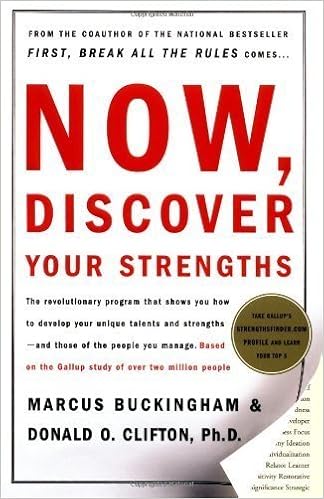by Marcus Buckingham & Donald O. Clifton, Ph.D.
Effectively managing personnel–as well as one’s own behavior–is an extraordinarily complex task that, not surprisingly, has been the subject of countless books touting what each claims is the true path to success. That said, Marcus Buckingham and Donald O. Clifton’s Now, Discover Your Strengths does indeed propose a unique approach: focusing on enhancing people’s strengths rather than eliminating their weaknesses. Following up on the coauthors’ popular previous book, First, Break All the Rules, it fully describes 34 positive personality themes the two have formulated (such as Achiever, Developer, Learner, and Maximizer) and explains how to build a “strengths-based organization” by capitalizing on the fact that such traits are already present among those within it. Most original and potentially most revealing, however, is a Web-based interactive component that allows readers to complete a questionnaire developed by the Gallup Organization and instantly discover their own top-five inborn talents. This device provides a personalized window into the authors’ management philosophy which, coupled with subsequent advice, places their suggestions into the kind of practical context that’s missing from most similar tomes. “You can’t lead a strengths revolution if you don’t know how to find, name and develop your own,” write Buckingham and Clifton. Their book encourages such introspection while providing knowledgeable guidance for applying its lessons.





